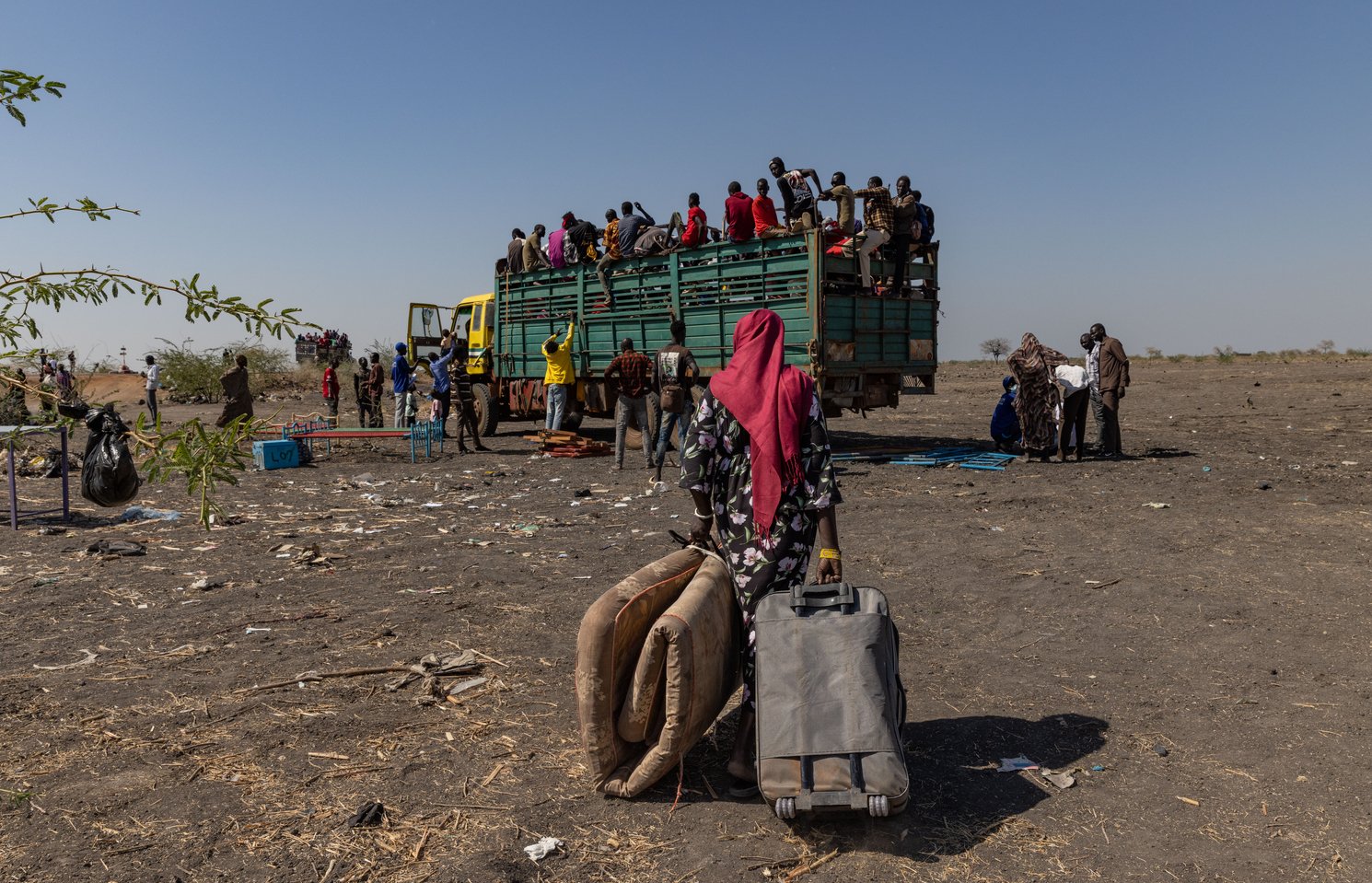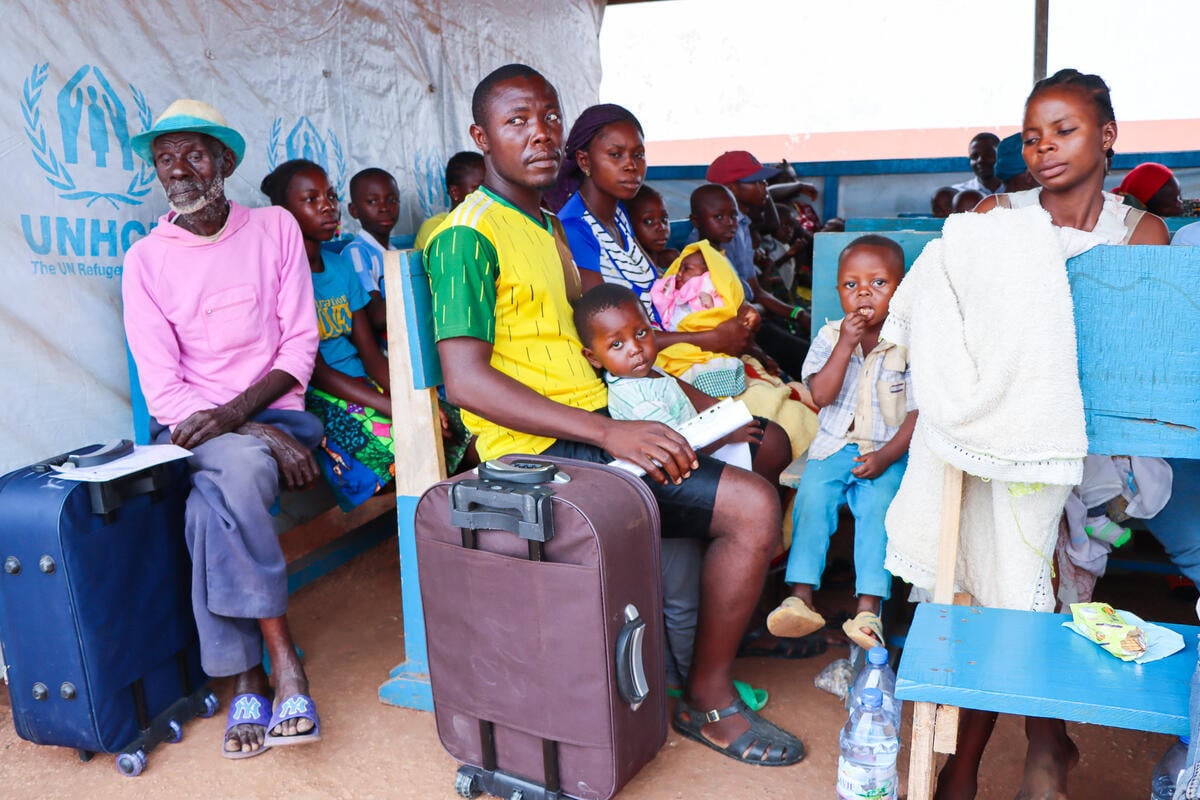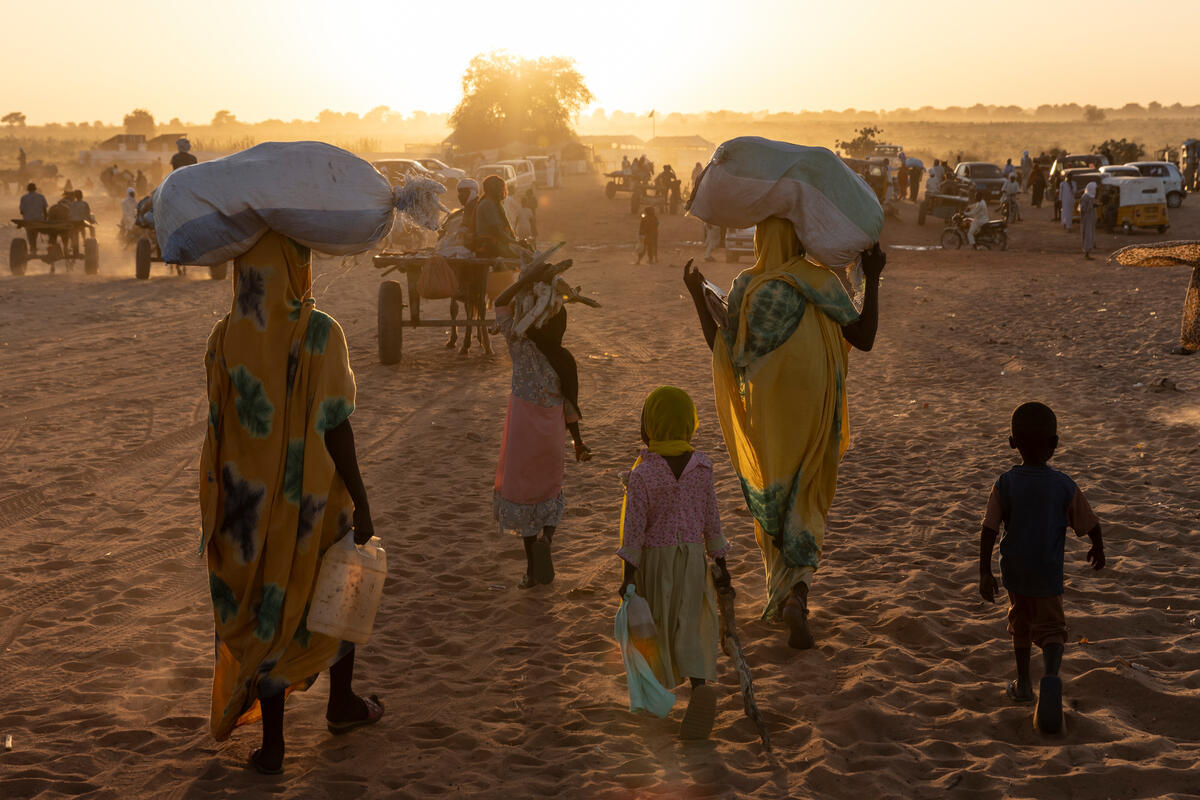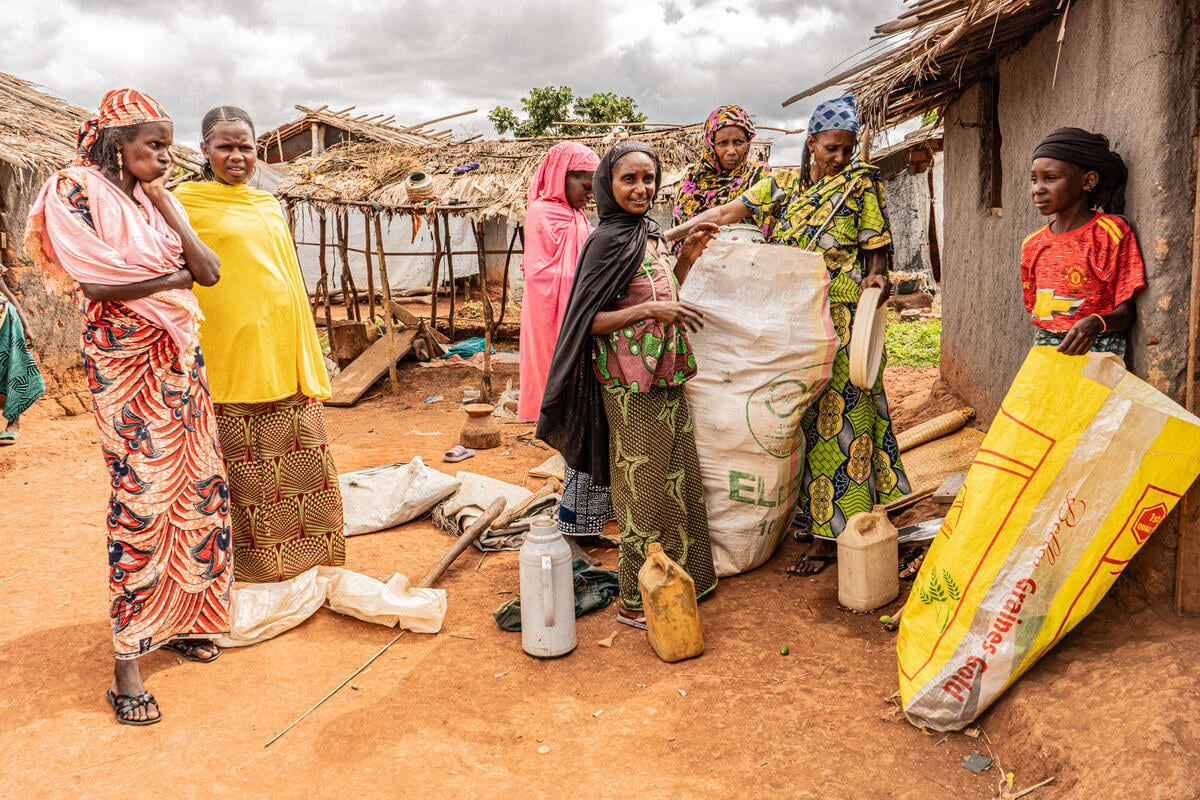UNHCR fears for safety of civilians in Central African Republic amid continuing lawlessness
UNHCR fears for safety of civilians in Central African Republic amid continuing lawlessness

BANGUI, Central African Republic, September 6 (UNHCR) - The UN refugee agency on Friday said it was "increasingly worried" about the safety of civilians in Central African Republic (CAR) after UNHCR staff reported widespread lawlessness during a field trip to the north.
Staff from UNHCR and the UN Office for the Coordination of Humanitarian Affairs (OCHA) travelled to the town of Paoua, 500 kilometres north of the CAR capital, Bangui, last week. They found seven villages burned to the ground and deserted - and an eighth village partially destroyed - with villagers hiding in the bush.
"Local people spoke of physical assaults, extortion, looting, arbitrary arrest and torture by armed men," UNHCR's chief spokesperson Melissa Fleming said, citing team members. "The villagers said their actions may have been in retaliation for a clash last month with self-defence groups who were trying to protect their families and property," she told journalists in Geneva.
"We are, in general, increasingly worried about the civilians caught in the middle of the fighting and who are at the mercy of anyone with a gun," she said. "We repeat our call to the authorities in Central African Republic, and to all armed groups, to protect civilians and make sure aid agencies can reach people in need," she added.
In Paoua, residents and displaced people living there told UNHCR staff they spend the night in the bush for safety and return to their homes only during the day. People are keeping away from roads to avoid detection. And the rains are making living conditions even worse.
In the village of Bedengui, 65 kilometres from Paoua, UNHCR staff found people mourning the kidnapping and murder of four family members
It is difficult to say exactly how many people in northern CAR have fled their homes, in part because of the insecurity and restricted access. Before the rebel Seleka alliance seized power in Bangui in March, almost 160,000 people lived in the affected area.
With the outbreak of fresh violence in the north late last month, thousands of people have fled. As of Wednesday morning, UNHCR staff had registered 3,020 displaced people in the region - adding to the estimated total of at least 206,000 displaced people across the country since December.
The fighting and violence has also driven tens of thousands of people across borders into neighbouring countries. In Chad, a recent wave of more than a thousand refugees arrived in the Moissala region. That followed a wave of 4,125 people in July and brings the total number of refugees received there this year to more than 13,000.
UNHCR staff in Cameroon have registered some 4,100 refugees from CAR since March, including 123 last week. In the Democratic Republic of the Congo, more than 40,000 refugees had arrived by late August. In total, more than 62,000 people have fled Central African Republic and sought shelter abroad.
The UN refugee agency is distributing relief supplies in the Paoua region such as tarpaulins, mosquito nets and kitchen sets.
By Djerassem Mbaiorem in Bangui, Central African Republic








